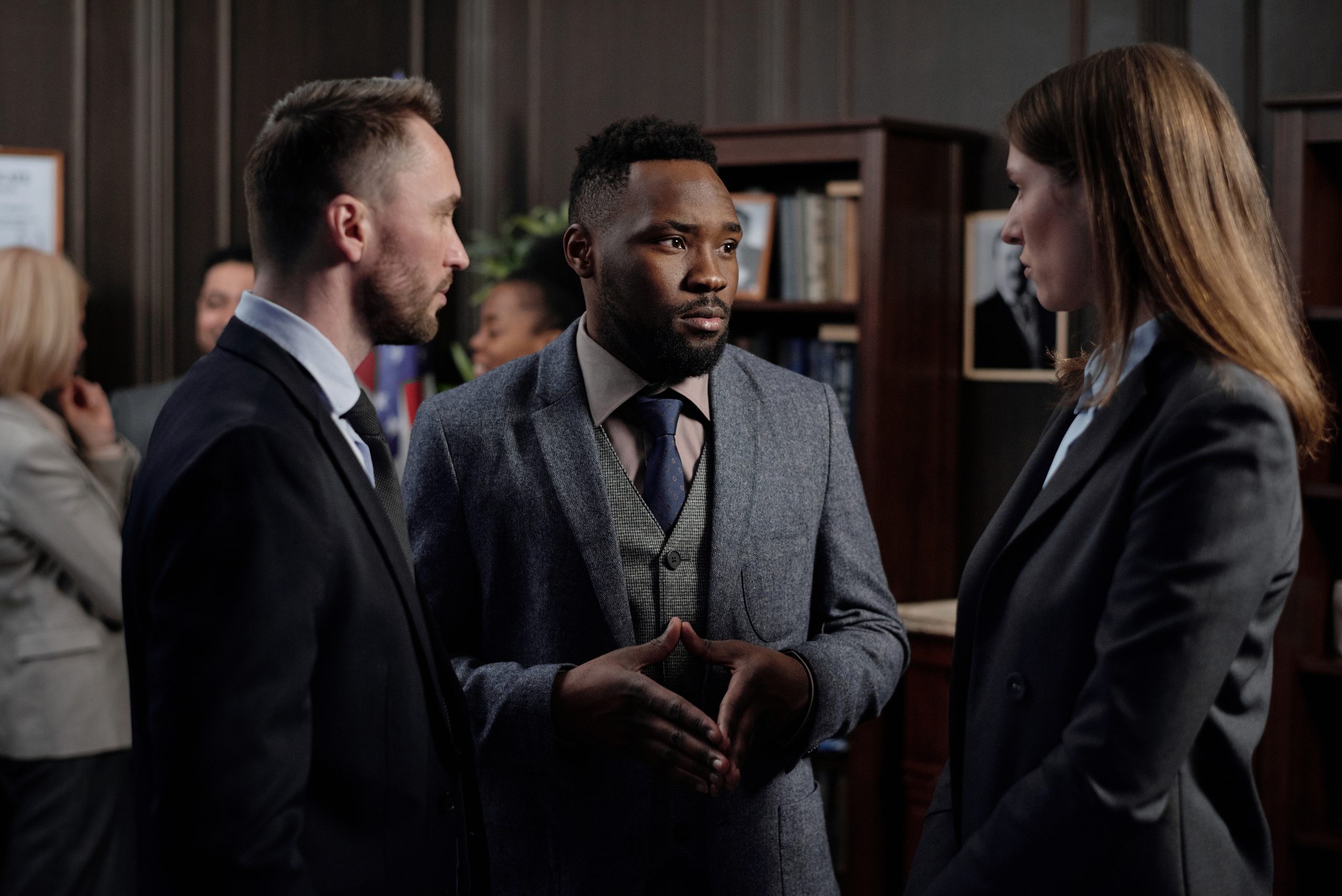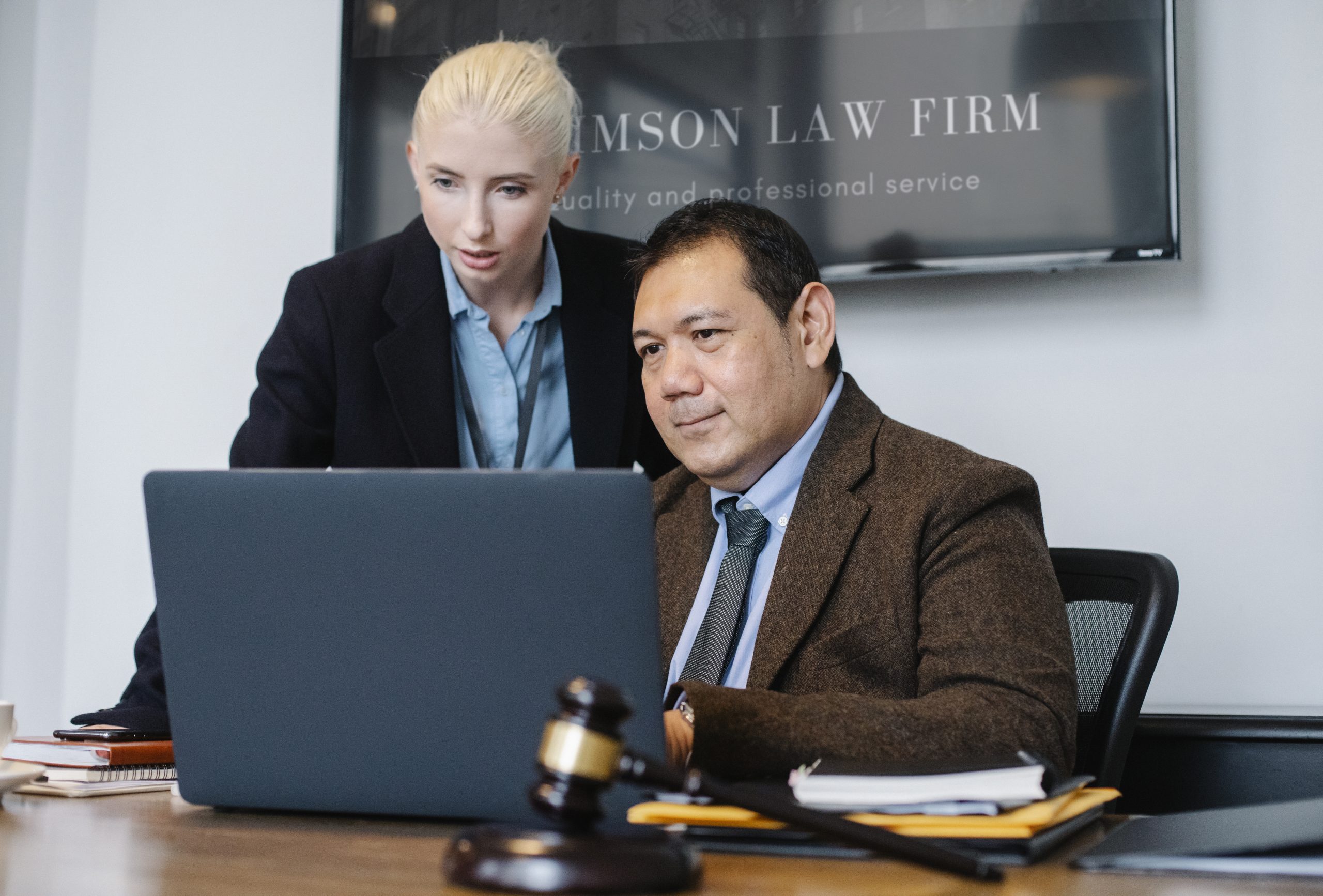Narrow Down Qualified Lawyers – When faced with a legal matter, it can be overwhelming to find the right lawyer to represent you. There are many factors to consider, such as their experience, reputation, and expertise in the relevant area of law.
Ways To Narrow Down Qualified Lawyers
To help narrow down your search and find qualified lawyers, here are three ways to consider:
Area of Practice
The first step to narrowing down qualified lawyers is to identify the area of law that your legal matter falls under. For example, if you need help with a divorce case, you will want to look for a lawyer who specializes in family law. Similarly, if you are starting a business, you will need a lawyer who has experience in corporate law. By identifying the specific area of law that you need assistance with, you can limit your search to lawyers who have the necessary expertise and qualifications.
Identify the specific area of law that your legal matter falls under
Identifying the specific area of law that your legal matter falls under is an important first step when searching for a qualified lawyer. Here are some tips on how to identify the relevant area of law:
- Research the legal issue: Before you can identify the relevant area of law, it’s important to have a basic understanding of the legal issue you are facing. Research the issue and gather as much information as possible about the relevant facts and legal principles.
- Consult with legal resources: There are many legal resources available that can help you identify the area of law that your legal matter falls under. These may include online legal databases, legal guides, or even legal professionals who can offer a consultation.
- Consider the nature of the legal issue: The nature of your legal issue can also give you a clue as to the relevant area of law. For example, if you are facing a dispute with your employer, employment law may be the relevant area of law. Similarly, if you are facing criminal charges, criminal law may be the relevant area of law.
By identifying the specific area of law that your legal matter falls under, you can begin to narrow down your search for a qualified lawyer who has expertise in that area. This can help ensure that you receive the best possible representation and outcome for your legal matter.
Looking for lawyers who specialize in the specific area of law that your legal matter falls under is an important step in finding a qualified lawyer. Here are some reasons why:
- Expertise and knowledge: Lawyers who specialize in a particular area of law have a deep understanding and knowledge of the legal principles, rules, and regulations that apply to that area. This can help them provide more targeted and effective legal advice and representation.
- Experience: Lawyers who specialize in a particular area of law typically have extensive experience handling cases similar to yours. This can give them the skills and insights needed to navigate the legal system and achieve the best possible outcome for your case.
- Connections and resources: Lawyers who specialize in a particular area of law often have connections and resources within that area of practice. This can include access to industry experts, specialized tools and resources, and other legal professionals who can assist with your case.
Limit your search to lawyers who have the necessary expertise and qualifications
Limiting your search to lawyers who have the necessary expertise and qualifications is essential when looking for a qualified lawyer to represent you in your legal matter. Here are some reasons why:
- Knowledge and skills: Lawyers who have the necessary expertise and qualifications have the knowledge and skills needed to provide effective legal advice and representation. They have received specialized training, education, and certification in their area of practice, which can help them navigate complex legal issues and achieve the best possible outcome for your case.
- Ethical standards: Qualified lawyers are bound by ethical standards that govern their behavior and conduct. They are required to act in the best interests of their clients and uphold the highest standards of professionalism and integrity.
- Legal requirements: Depending on the area of law, there may be specific legal requirements that lawyers must meet to practice. For example, they may need to be licensed by the state bar association or have specific certifications or qualifications in their area of practice. Limiting your search to lawyers who meet these requirements can help ensure that you receive high-quality legal representation.
Experience
Once you have identified lawyers who practice in the relevant area of law, the next step is to look at their experience. Consider factors such as how long they have been practicing law, their track record of success, and any relevant cases they have handled in the past. Experienced lawyers are likely to have a better understanding of the law and the legal system, and may be better equipped to handle complex cases.
Look at how long the lawyer has been practicing law
Looking at how long the lawyer has been practicing law can be a useful factor to consider when searching for a qualified lawyer. Here are some reasons why:
- Experience: Lawyers who have been practicing law for a longer period typically have more experience handling a variety of legal issues. This can give them the skills and insights needed to navigate complex legal issues and achieve the best possible outcome for your case.
- Track record: A lawyer’s track record can be an important indicator of their experience and success in their area of practice. By looking at their past cases and results, you can get a sense of their skills and abilities, as well as their approach to representing clients.
- Reputation: Lawyers who have been practicing law for a longer period may have developed a reputation within the legal community. This can include recognition from peers, awards, and other forms of professional recognition, which can indicate a high level of expertise and quality of service.
Check for any specialized training or education
Checking for any specialized training or education that a lawyer has received is an important step when searching for a qualified lawyer. Here are some reasons why:
- Expertise: Specialized training or education in a particular area of law can provide lawyers with a deeper understanding and knowledge of the legal principles, rules, and regulations that apply to that area. This can help them provide more targeted and effective legal advice and representation.
- Credentials: Specialized training or education can also result in additional credentials or certifications that can indicate a higher level of expertise or proficiency in a particular area of practice. This can include, for example, certifications from professional organizations or specialized training programs.
- Competitive advantage: Lawyers with specialized training or education may have a competitive advantage over other lawyers who do not have this background. This can help them provide better quality representation and achieve better outcomes for their clients.
Reputation
Finally, it is important to consider a lawyer’s reputation in the legal community. Look for reviews from former clients, as well as peer reviews and recommendations from other lawyers. You can also check with your state bar association to see if there have been any disciplinary actions or complaints against the lawyer. A lawyer with a good reputation is more likely to provide quality representation and be committed to achieving the best possible outcome for their clients.
Look for reviews from former clients and peer reviews
Looking for reviews from former clients and peer reviews is a useful way to narrow down qualified lawyers. Here are some reasons why:
- Insights into the lawyer’s skills and reputation: Reviews from former clients and peer reviews can provide valuable insights into the lawyer’s skills, reputation, and level of service. They can give you an idea of how lawyer interacts with clients, how they handle legal issues, and how successful they are at achieving favorable outcomes for their clients.
- Independent assessment: Reviews from former clients and peer reviews are usually independent assessments of the lawyer’s performance. They are typically based on the reviewer’s own experience with the lawyer and can provide an unbiased and objective view of their abilities.
- Evidence of client satisfaction: Positive reviews from former clients can be a good indicator of the lawyer’s ability to satisfy clients and meet their needs. They can provide reassurance that the lawyer is capable of handling your legal matter professionally and effectively.
Check with the state bar association for any disciplinary actions or complaints
Checking with the state bar association for any disciplinary actions or complaints against a lawyer is an important step when searching for a qualified lawyer. Here are some reasons why:
- Professional conduct: Lawyers are held to a high standard of professional conduct, and any disciplinary actions or complaints can be an indication of a lawyer’s ethical violations or misconduct. By checking with the state bar association, you can ensure that the lawyer you are considering is in good standing and has not engaged in any unethical behavior.
- Protection for clients: Checking for any disciplinary actions or complaints can also help protect you as a client. If a lawyer has a history of disciplinary actions or complaints, it may be a warning sign that they are not the best choice for your legal matter.
- Peace of mind: By checking with the state bar association, you can have peace of mind knowing that the lawyer you are considering is trustworthy, competent, and ethical. This can help you feel confident in your decision to hire them.
Consider the lawyer’s reputation in the legal community and their commitment to their client’s success.
- Reputation in the legal community: Lawyers who have a good reputation in the legal community are often well-respected and have a positive track record of success. They may have established relationships with other lawyers, judges, and other legal professionals, which can help them navigate the legal system more effectively on behalf of their clients.
- Commitment to client success: Lawyers who are committed to their client’s success are often more dedicated to providing high-quality legal representation and achieving favorable outcomes for their clients. They may take the time to understand their client’s goals and needs and work closely with them throughout the legal process to help them achieve their desired outcomes.
- Client reviews and testimonials: Reviews and testimonials from former clients can be a good indication of a lawyer’s commitment to their client’s success. Positive reviews may highlight the lawyer’s ability to provide personalized attention, communicate effectively, and achieve successful outcomes for their clients.
READ ALSO
- Narrow Down Qualified Lawyers
- Is Major Banks A Good Career Path? (Career Opportunities In Banking Industry)
- Safeway Money Orders
- Narrow Down Qualified Lawyers
- Customer Journey Mapping Insurance
why would a good lawyer not tell a client how their case will come out at the initial consultation?

There are a few reasons why a good lawyer may not be able to tell a client how their case will come out at the initial consultation:
- Lack of information: At the initial consultation, the lawyer may not have all the necessary information about the case. They may need to conduct further research, gather evidence, or consult with experts before they can make an informed assessment of the case.
- The complexity of the case: Some legal matters can be complex and involve a number of legal issues. It may be difficult for the lawyer to predict the outcome of the case without a thorough understanding of all the legal issues involved.
- Uncertainty in the legal system: The legal system can be unpredictable, and there are many factors that can impact the outcome of a case. Even with a thorough understanding of the legal issues involved, it can be difficult to predict with certainty how a judge or jury will rule.
- Ethical considerations: Lawyers have an ethical obligation to provide clients with competent representation and to avoid making false or misleading statements. If a lawyer is not certain about the outcome of a case, they may be hesitant to make any promises or predictions that they cannot deliver on.
for what reason might someone decide to bring a civil lawsuit against a person or a business?
- Personal injury: If someone is injured due to the negligence or intentional actions of another person or business, they may bring a civil suit to seek compensation for their medical expenses, lost wages, pain and suffering, and other damages.
- Breach of contract: If a person or business fails to fulfill their obligations under a contract, the other party may bring a civil suit to seek damages or specific performance (i.e. requiring the other party to fulfill their obligations).
- Property disputes: If there is a dispute over property ownership or use, a civil suit may be brought to resolve the issue and determine who has legal rights to the property.
- Employment disputes: If an employee believes they have been wrongfully terminated, discriminated against, or otherwise mistreated by their employer, they may bring a civil suit to seek compensation or other remedies.
- Intellectual property disputes: If someone believes that their intellectual property rights (such as patents, trademarks, or copyrights) have been infringed upon by another person or business, they may bring a civil suit to seek damages or injunctive relief.
- Consumer protection: If a person believes that they have been deceived or harmed by false advertising or other deceptive business practices, they may bring a civil suit to seek damages or other remedies.
describe the procedure for a civil law trial. what are the possibilities for the outcome of a case?

The procedure for a civil law trial depends on the jurisdiction and the specific court involved, but generally follows a similar process:
- Filing the complaint: The plaintiff files a complaint with the court, outlining the facts of the case and the legal basis for their claim.
- Answer: The defendant is served with the complaint and has a certain amount of time to file an answer, either admitting or denying the allegations made in the complaint.
- Discovery: Both parties exchange information and evidence through the process of discovery. This may include depositions, written interrogatories, requests for the production of documents, and requests for admission.
- Pretrial motions: Both parties may file pretrial motions to resolve any legal issues before the trial begins, such as a motion for summary judgment or a motion to exclude certain evidence.
- Trial: The trial begins with jury selection (if applicable) and opening statements from both parties. The plaintiff presents their case through witness testimony and evidence, followed by the defendant’s case. Closing arguments are presented by both parties, and the jury (if applicable) is instructed on the law by the judge.
- Verdict: The jury (if applicable) deliberates and returns a verdict, or the judge makes a decision if there is no jury. The verdict or decision may be in favor of the plaintiff or the defendant.
- Appeal: Either party may appeal the decision to a higher court, which will review the record and determine if there were any errors or legal issues that affected the outcome of the trial.
The outcome of a civil law trial can vary depending on the specific case and the evidence presented. Some possible outcomes include:
- Judgment in favor of the plaintiff: The plaintiff is awarded damages or other relief.
- Judgment in favor of the defendant: The plaintiff’s claim is dismissed, and the defendant is not required to pay any damages or provide any relief.
- Settlement: The parties may reach a settlement agreement before or during the trial, in which the defendant agrees to pay the plaintiff a certain amount of money or provide other relief in exchange for the plaintiff dropping the case.
- Mistrial: The trial may be declared a mistrial if there are significant legal errors or other issues that prevent a fair trial from taking place.
compare and contrast the penalties in a civil and criminal trial
Civil and criminal trials are distinct legal processes with different purposes and outcomes. The penalties for civil and criminal cases also differ significantly.
In a criminal trial, the purpose is to determine whether the defendant has committed a crime and to hold the defendant accountable for that crime. The government, represented by a prosecutor, brings a criminal case against the defendant. If the defendant is found guilty, the judge will sentence them to a punishment, which may include:
- Incarceration: This can range from a short-term sentence in a local jail to a long-term sentence in a state or federal prison.
- Fines: The defendant may be required to pay a monetary penalty.
- Probation: The defendant may be required to follow certain conditions, such as regular meetings with a probation officer, drug testing, or community service.
- Restitution: The defendant may be required to compensate the victim or pay for any damages caused by their criminal behavior.
- Other penalties: Depending on the specific crime, there may be additional penalties such as loss of a professional license, loss of voting rights, or deportation if the defendant is not a citizen.
In a civil trial, the purpose is to resolve a dispute between two parties and determine liability or fault. The plaintiff brings a civil case against the defendant, seeking compensation for harm or damages suffered. If the defendant is found liable, the judge may order them to pay a monetary award or provide other relief, which may include:
- Monetary damages: The defendant may be ordered to pay a sum of money to the plaintiff to compensate for their losses.
- Injunctive relief: The defendant may be ordered to take or refrain from taking certain actions.
- Specific performance: The defendant may be ordered to perform a specific action, such as delivering goods or completing a contract.
- Declaratory relief: The judge may issue a ruling on a legal issue or interpret a contract.
- Other remedies: Depending on the specific case, there may be additional remedies available, such as punitive damages or attorney’s fees.
How to decline a lawyer

If you have decided not to work with a particular lawyer, it is important to let them know in a polite and professional manner. Here are some steps you can follow to decline a lawyer:
- Be honest: It is important to be clear about your reasons for declining the lawyer. You can be honest and say that you have decided to go with another lawyer, or that you are not comfortable with their approach or communication style.
- Thank them for their time: Regardless of your decision, it is important to thank the lawyer for their time and effort. This shows that you appreciate their willingness to assist you and respect their profession.
- Keep it brief: You don’t need to go into too much detail when declining a lawyer. Keep your message concise and to the point.
- Communicate in writing: It is best to communicate your decision in writing, such as via email or letter. This allows you to clearly express your thoughts and avoid any misunderstandings.
- Be respectful: Remember to maintain a professional tone and avoid any negative comments or criticism. The legal community is relatively small, and you never know when you may need to work with this lawyer or someone you know in the future.
- Consider providing feedback: If you feel comfortable doing so, you can offer constructive feedback to the lawyer about why you decided not to work with them. This can help them improve their services for future clients.
